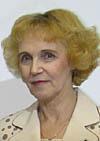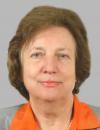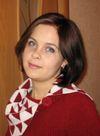References
- Chuikova E. S. Strategies for developing system of teaching academic writing in Russia. [Electronic resource]. Baltijskij gumanitarnyj zhurnal [Baltic Humanitarian Journal]. 2018. Vol. 7. No. 3 (24). P. 327–330. Electron. dan. URL: https://cyberleninka.ru/article/n/strategicheskie-napravleniya-razvitiya-metodicheskoy-sistemy-obucheniya-akademicheskomu-pismu-v-rossii (date of access 14.08.2024). (In Russ.)
- Zashikhina I. M., Pechinkina O. V. Scientific publications format IMRaD for social and humanities research: a chance to be heard. Vysshee obrazovanie v Rossii [Higher Education in Russia]. 2022. Vol. 31. No. 10. P. 150‒168. DOI: 10.31992/0869-3617-2022-31-10-150-168 (In Russ.)
- Suchkova S. A. Russian model of a writing center: the case of HSE university // Emerging Writing Research from the Russian Federation. Colorado. 2022. 299 с. DOI: 10.37514/INT-B.2021.1428.2.06
- Korotkina I. B. Models of teaching academic writing. International and domestic practice. Moscow, 2022. 219 p. (In Russ.)
- Kolesnikova N. I. Russian scientific style vs academic writing. Obshestvo. Kommunikatsiya. Obrazovaniye [Society. Communication. Education]. 2022. Vol. 13. No. 1. P. 36–47. DOI: 10.18721/JHSS.13104 (In Russ.)
- Sheypak S. A. Academic writing: critics of the traditional EAP approach. Vysshee obrazovanie v Rossii [Higher Education in Russia]. 2020. Vol. 29. No. 2. P. 92‒10. DOI: 10.31992/0869-3617-2020-29-2-92-10 (In Russ.)
- Robotova A. S. Skeptic’s comment: what questions ‘academic writing’ does not answer. Vyssheeobrazovanie v Rossii [Higher Education in Russia]. 2018. Vol. 27. No. 11. P. 71‒84 DOI: 10.31992/0869-3617-2018-27-11-71-84 (In Russ.)
- Lynn S. Rhetoric and Composition: An Introduction. Cambridge: Cambridge University Press, 2010. 330 p.
- Bain A. English Composition and Rhetoric: A Manual (Classic Reprint). Forgotten Books. Charleston (USA), 2017. 356 p.
- Popova N. G., Khabirova E. I. Resources for developing the research publication competencies of Russian researchers. Obrazovanie i nauka [The Education and Science Journal]. 2023. Vol. 25. No. 8. P. 80–114. DOI: 10.17853/1994-5639-2023-8-80-114 (In Russ.)
- Bazanova E. M., Starostenkov N. V. National writing centers consortium: panacea or placebo for a lost generation of the Russian scientists? [Electronic resource]. Universitetskaja kniga [University Book]. 2018. Vol. 3. P. 27–35. Electron. dan. URL: http://www.unkniga.ru/kultura/8446-nacionalniy-konsortsium-tsentrov-pisma-panatseya-iliplatseboo-1.html (date of access 14.08.2024). (In Russ.)
- Dugartsyrenova V. A. Issues and challenges in teaching academic writing to non-native English speakers [Electronic resource]. Vysshee obrazovaniye v Rossii [Higher Education in Russia]. 2016. No. 6 (202). P. 106–112. Electron. dan. URL: https://cyberleninka.ru/article/n/trudnosti-obucheniya-inoyazychnomu-akademicheskomu-pismu (date of access 14.08.2024). (In Russ.)
- Smirnova N. Academic literacy as a factor in foreign language professional training [Electronic resource]. Vestnik VGU. Seriya: Lingvistika i mezhdunarodnaya kommunikatsiya. [Vestnik VGU. Series: Linguistics and International Communication]. 2017. Vol. 1. P. 140‒147. (In Russ.)
- Babakova T. A., Dobrinina O. L., Yusupoav L. N. Organizational and didactic approaches to creating and functioning of academic writing centre in a regional university. Nepreryvnoe obrazovanie: XXI vek [Lifelong Education: The 21st Century]. 2023. Vol. 3 (43). P. 1‒27. DOI: 10.15393/j5.art.2023.8645. (In Russ.)














